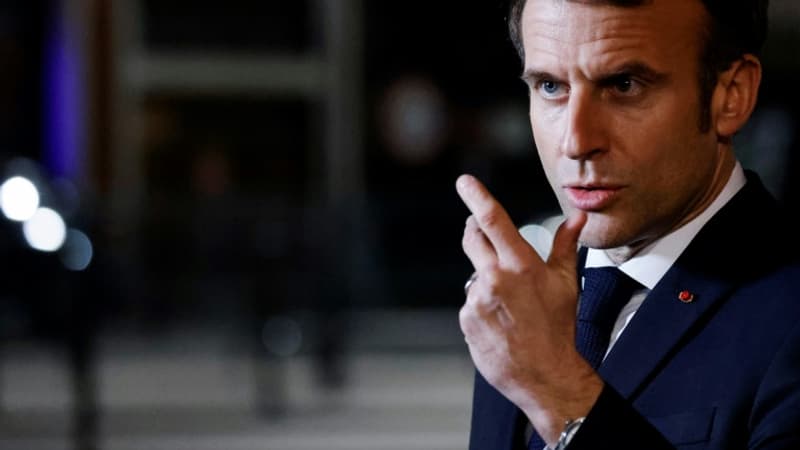Emmanuel Macron is going to contact the mayors meeting in Paris this Wednesday to show a more “peaceful” relationship than in the past, but clouded by the pressing expectations of elected officials often gripped by energy inflation.
This year, the Élysée says it wants to innovate: there is no closing speech at the 104th Congress of the Association of Mayors of France (AMF) for the Head of State – Prime Minister Elisabeth Borne will deliver it on Thursday – but a long “wandering ” of several hours in his show, organized in parallel to the Parc des expositions of the Porte de Versailles with 1200 exhibitors.
It is about going to meet those who “offer innovative solutions” and “have a much more direct and strong contact”, advocates the presidency.
Emmanuel Macron will speak before a thousand mayors, but in the afternoon during the already traditional reception at the Élysée. At home. The choice of staging rattles some teeth, especially in opposition. “It confuses the Mayors Fair and the agricultural fair”, laments the socialist André Laignel, vice president of the AMF, considering that “many colleagues” consider that “not to cross the corridor to come see the mayors” at the congress, ” It’s a bad way.”
“True decentralization”
However, between the powerful association of elected officials and the president, the time for appeasement has come after a first five-year term marked by tensions. The president of the AMF, David Lisnard, mayor of Les Républicains in Cannes, believes that Emmanuel Macron has “completely changed” his discourse by opening the door to “a new chapter of decentralisation”.
In Château-Gontier, in Mayenne, the President of the Republic spoke in October in favor of “true decentralization”, accompanied by the transfer of “responsibilities”, “regulatory power” and the necessary “financing” – as opposed to the “false decentralization” in force according to him until now.
In the Élysée, on the contrary, we want to see in the improvement with the communities “the fruit” of the policies initiated five years ago in favor of financial support and a “return of the State to the territories”, more than any turning point .
The executive highlights the opening of 2,600 France Services houses by the end of December (100 more than initially promised) or the creation of 35 additional sub-prefectures, including six this year.
“To show off”
The Government has also multiplied its actions in recent weeks, announcing an additional 1,200 million euros to local authorities in the form of a loan to accelerate the ecological transition and five billion until 2026 to “revitalize” the center of 234 medium-sized towns.
Above all, Elisabeth Borne announced a higher-than-expected increase in the Global Operating Grant (DGF) for local authorities in 2023, to €320 million, evoking an unprecedented effort in thirteen years.
David Lisnard retorted that he “brags” and sees only a modest recovery, since the FGD “has not been indexed to inflation since 2010.” Elected officials are concerned about the abolition of taxes they collected, such as the housing tax on principal residences and now the CVAE, a tax on production. Municipalities are now also tempted by a property tax hike, one of the only tax levers they still have.
Because the councilors are also facing an explosion in energy spending, due to the increase in electricity and gas costs after the war in Ukraine. The government has put in place an “electric shock absorber” and a “safety net” well received by the mayors, who, however, await details on its operation. Before the presidential visit, the Élysée insisted on “reassuring” them, stating that indeed the State was “on their side” to “help them overcome this obstacle.”
Source: BFM TV


